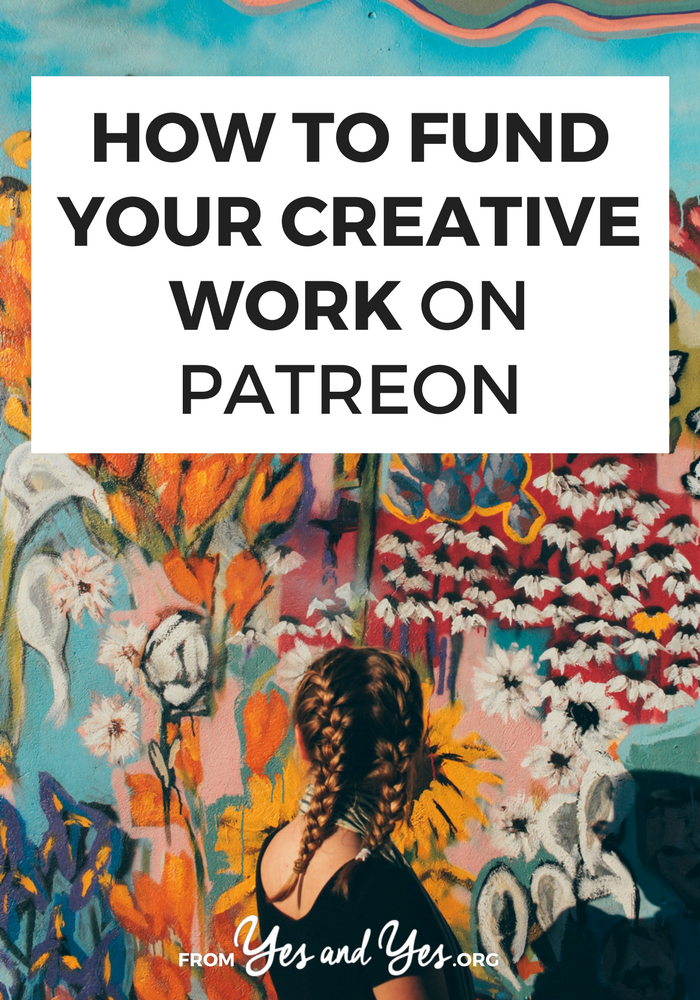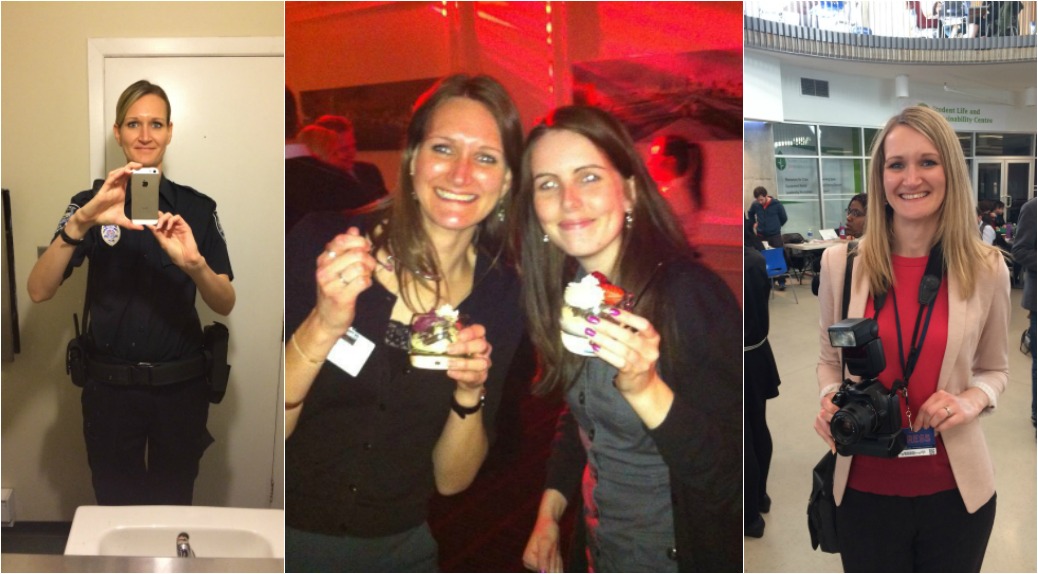
When I discovered that my friend Nicole was funding her amazing podcast Real Talk Radio via Patreon I was verrrrry intrigued. No sponsors? No ad breaks? But she wasn’t doing it for free? WHAT IS THIS SORCERY.
So I obviously asked her to tell us all about it! If you’ve ever wondered what the deal is with Patreon or wanted to try it yourself – read on! *
Let’s talk about art and money.
Have you ever created something – a poem, a YouTube video, an ebook of short stories, a podcast series, a web comic – and thought, “This is great, I loved making it, people are sharing it on social media, but how do I actually get paid?”
I struggled with that question a lot when I first started my podcast, especially because podcasts (like blogs and YouTube videos) fall into the category of content-that-everyone-expects-to-consume-for-free-no-matter-how-long-it-took-you-to-make.
So if you’re an artist or creator of any kind who produces work on an ongoing basis, how can you bring your fans together, form a community, and actually get paid for your work?
That’s the question I’ve been working to answer for the past two years as a podcast host, and I’m finding success with a platform called Patreon.
What is Patreon?
I think of Patreon as a cross between a one-time crowdfunding campaign (like Kickstarter) and an ongoing subscription payment model (via PayPal).
At its most basic, Patreon allows you to get paid regularly for the work you create.
Patreon allows your fans to gather in one place, pledge ongoing monetary support for your work, interact with you through a private discussion page, and earn whichever rewards you’ve chosen for each pledge tier.
Similar to Kickstarter, you have a creator page that allows you to share a written or video description of who you are and what you make, and you can set funding levels that specify rewards earned by patrons at each level.
Depending on your creation schedule, you can either charge patrons once per month or once per “thing” (for example, my patrons are charged each time I release a full season of my podcast, and they aren’t charged at all in between).
What I like most about Patreon
1. Direct link between artists & fans
My favorite thing about Patreon is that it creates a beautifully simple and transparent connection between creators and consumers. The creator makes things that the consumers love, and the consumers pay them directly for that work. That sounds simple and obvious, but in the world of advertising and sponsored content this direct-payment method for art is becoming more and more rare.
Patreon helps to bring about a crucial (and often overlooked) conversation in regard to art and money, which is that it takes time and resources to create something of value, and that paying others for their writing/videos/drawings/newsletters/music that you use and love is the only way to ensure that that work will continue to be available.
This, to me, feels much better than the traditional podcast monetization model where I sell my audience’s attention to advertisers and sponsors and get paid that way instead.
2. One central place to manage your community
When someone clicks the button on your Patreon page that says “Become a Patron,” they input their payment info and are automatically added to your community. They get access to your patron-only posts, you’re able to send them private messages, and they’ll get notified each time you share something new.
This is much more streamlined than using a PayPal subscription model + Facebook group + whatever else, especially since it makes it easy for patrons to change their pledge amount or to stop pledging and leave the community whenever they choose. And none of that needs to be managed by you, the creator.
3. Customizable sub-communities
Patreon allows you to set different pledge amounts ($1 per month, $5 per month, $10 per thing, $20 per thing, etc) and you can communicate separately with each of these separate groups of patrons.
When you go to create a new post (similar to how you’d create a post on Facebook or on any other platform), you can choose who will see it. Is the post public for everyone who visits your page? Is it only visible to those who support at $5? $10? Having this kind of control allows you to give custom rewards and surprises, and to talk directly with a small subset of your community.
Tips for success on Patreon
There are thousands of creators on Patreon, each with a slightly different approach. For me, the following four things summarize what’s been most helpful in building a community of 400+ supporters who collectively pledge $3,300+ per podcast season.
1. Simplicity and transparency
What do you create? How often do you release it? What will your fans get when they pledge to support your work? Being as clear as possible about what they’ll pay, how often they’ll be charged, what you’ll be making for them, and any bonuses and rewards they’ll receive is crucial. No one is going to pay you if they don’t know what they’re getting.
2. Fun rewards
People love to feel special, and any rewards you can provide for your different funding levels will help turn fans into paying supporters. My Patreon community receives over 40 hours of bonus audio content, plus access to a monthly book club, the chance to be featured on a podcast outro, first dibs on live event tickets, and more. I give them at least one new thing every month, and try to surprise and delight whenever possible.
3. Avoid the word “donate”
I am not a charity, I am not looking for handouts, and I do not ask my listeners to “donate”. I’ve used this type of language in the past and have found that it just feels icky for everyone. I am not asking a listener for a favor; I am asking them to help support a show that they already love.
I am asking them to remember that everything we listen to/read/watch takes time and energy and money to create, and that creation isn’t possible without the proper funding. Even though I absolutely love what I do, that doesn’t mean that I am able to do it for free. Share on XTreating myself as the hardworking podcast host that I am sets a tone that is respectful on both ends – my patrons respect all that I pour into my work and I respect that they are using their limited and hard-earned dollars to make my work possible.
4. Open dialogue and ongoing conversation with fans
Having all of your patrons in one place allows you to talk together as a group. I’ll often ask for input and feedback to find out in real time what they’re loving, what they want to see more/less of, etc. Your patrons have chosen to support you for a reason: they love what you do. So why not talk with them directly and often to learn what might make your upcoming work something that they’re even more obsessed with!
I’ll be experimenting with a few other things on Patreon in the coming months, such as adding one or two more reward tiers, shortening the copy on my creator page, adding a video, and taking advantage of their “goals” feature which allows you to publicize a funding goal and state what you’ll be able to do once that goal is reached. There’s so much more that I’m excited to do on this platform!
Which brings me to the best thing about Patreon: there are lots of options to explore and test, and each artist has the freedom to pick and choose the functionality that will best support their unique vision and community. All while creating a world in which the intersection of art and money isn’t so frustrating and taboo, and where we as consumers can joyfully use our money to vote on the type of content we’d love to see more of in the world.
Thanks so much for sharing, Nicole! Do any of you guys use Patreon – as either a creator or supporter? Tell us in the comments so we can check out other accounts!
* This is NOT a sponsored post for Patreon. If you know of other platforms that serve a similar purpose, tell us about it in the comments!
P.S. You can join Nicole’s awesome Patreon community here!













Never heard of Patreon, but I think it’d be a suitable channel for my boyfriend, who’s in the process of developing his own creative freelance work. Thanks for introducing!
Charmaine Ng | Architecture & Lifestyle Blog
http://charmainenyw.com
I really love the idea of Patreon because it allows me to directly support the stuff I want! For example, I read a few webcomics, and they often crowdfund for physical copies of a collection of strips, or make merch like tshirts. But I don’t really want those products, I’m not a collector. I listen to podcasts that have sponsors/ads, and I’m fine with those, but I’ll never count towards referrals/conversions/whatever that’s called, because they’re usually for products or services in the US, and I don’t have access to them. The same with Amazon affiliate links, I’m in the wrong region.
Maybe the answer is to stop listening to / looking at so much American content 🙂 But my point is that Patreon allows me to directly pay for the content/art/what-have-you that we enjoy in the first place, which is only right! We are so used to getting content for free, that I have had to work hard to change my mindset about paying creators (dating an artist helped with this significantly!)
David Willis is a webcomic artist who has a Patreon model I like, where everyone gets 2 bonus strips a month, and those who pledge $5 or more a month, get tomorrow’s strip today. ( https://www.patreon.com/dumbingofage if anyone wants a peek ) The comic is always accessible for free, but people who pay get a little something extra. And the pledge levels are accessible. Of course, he has a large audience, which makes it easier 🙂
I love the idea of Patreon – I am on the site as both a creator writing fiction and a supporter. In my ideal world, people would be sufficiently supported by their patrons that they can not only live their life, but can in turn support other artists. In a way, it’s not just about the money either (although let’s not kid ourselves about its value), I find that giving someone patronage feels like giving them a warm hug to say “I appreciate you and what you do”, even if it’s as little as $1 a month.
The steepest learning curve that I’ve run into is that I’m not sure how much to share and what people would find interesting as rewards, but it’s an interesting journey.
Hi!
I’d like to know how Patteon works for someone involved in several different artistic genres, I.e. photography, writing, visual art, etc.